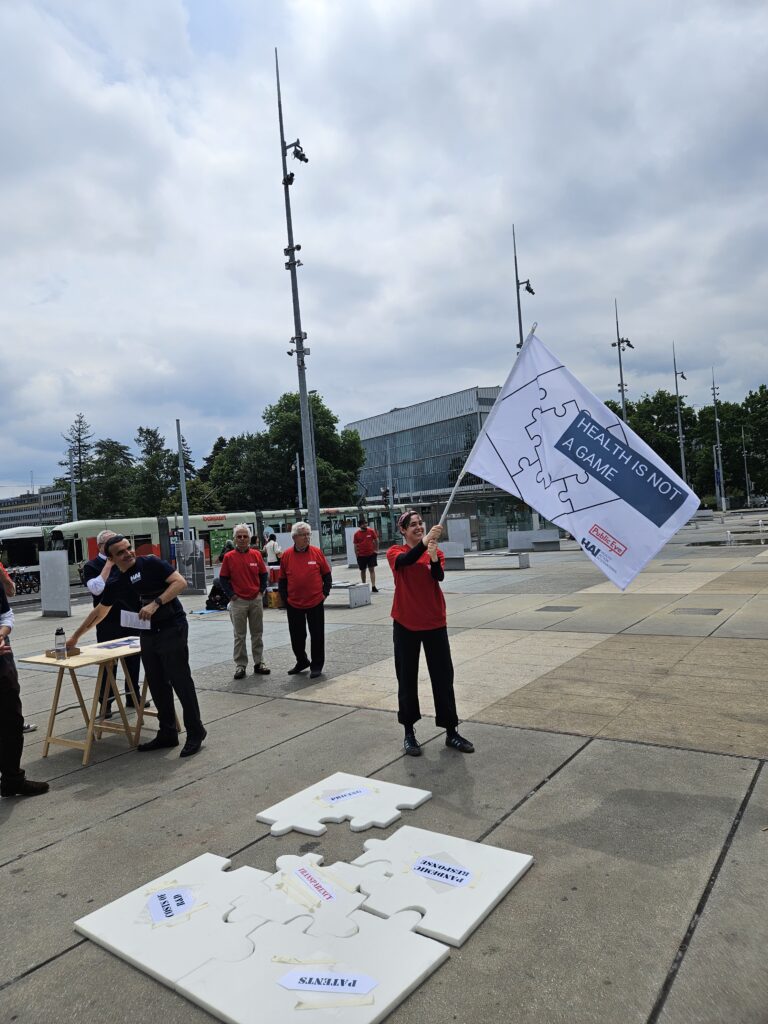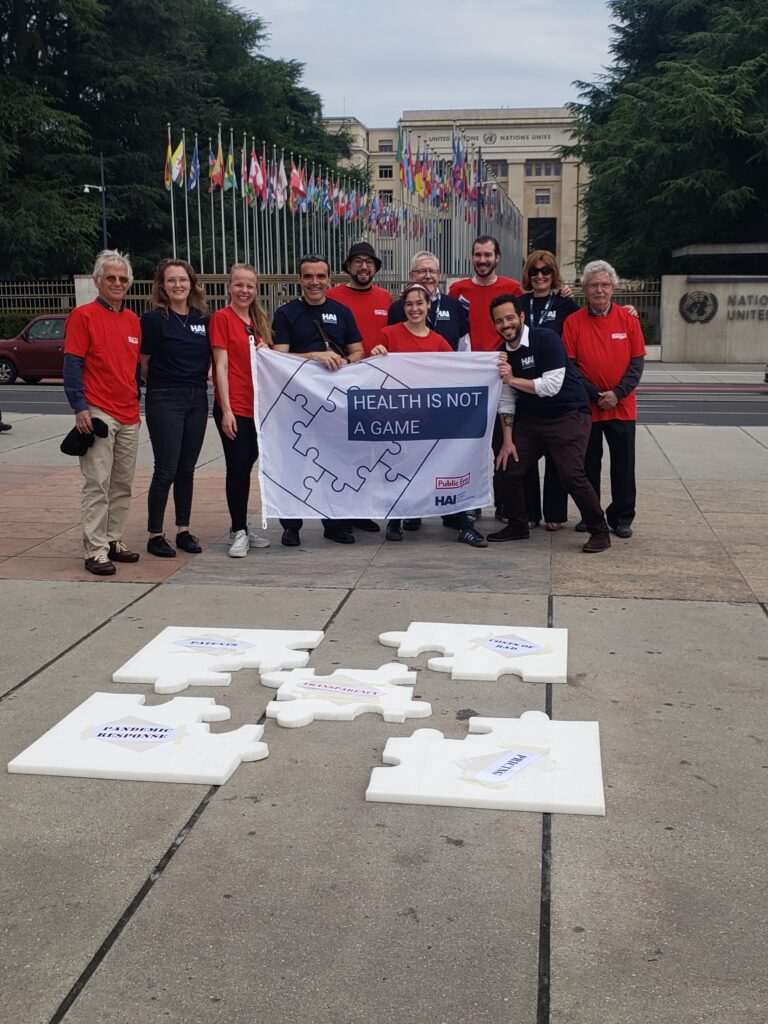Greater transparency is at the very heart of the quest for equitable access to medicines and other health technologies. Without it, it will be impossible to realise the fundamental human right to the highest attainable level of health. But it won’t happen as long as pharma is gaming the system.
In May 2019, the World Health Assembly (WHA), after intense negotiations, adopted resolution WHA72.8 on “Improving the transparency of markets for medicines, vaccines, and other health products”. The resolution urges World Health Organization (WHO) Member States to ensure greater disclosure of medicines’ prices and that of other health products.
Unsurprisingly, the final version of this resolution ended up far more diluted than its initial proposal, due to strong opposition from a number of Member States – an opposition that remains just as vocal today. As a result, the resolution mostly revolves around States taking voluntary measures, especially needed on the critical issue of transparency of the costs of biomedical research and development. Keeping these costs opaque and hidden enables pharmaceutical companies to set and justify any price they want.
Despite being widely recognised as an important milestone, and even a ‘landmark agreement’ by WHO Director-General Dr Tedros Adhanom Gheyebresus, the resolution has not yielded much change since its adoption. In fact, over the past three years progress has been painfully slow, as has been follow-up by the WHO secretariat.

It could be argued that the COVID-19 pandemic provided an excuse for some to double down on opaque practices. The European Union’s COVID-19 vaccines acquisition strategy, for example, involved negotiating with pharmaceutical companies behind closed doors. And now, three years on from the beginning of the pandemic, ongoing negotiations on the issue of pandemic preparedness and response are not meeting expectations. Although deliberations on the amendment of the International Health Regulations, adopted in 2005, are mostly open to civil society, the same cannot be said for the drafting of a separate international legal instrument on pandemic prevention, preparedness, and response through the intergovernmental negotiating body (INB) mechanisms. These negotiations are held behind closed doors with barely any access to the actual drafting and negotiating for non-state actors and civil society at large, despite its work being supposedly based on the principles of “inclusiveness” and “transparency”.
Lack of transparency continues to be a theme across other components that are critical to universal access to health technologies, and intellectual property protection mechanisms continue to be misused due to the lack of available and accessible information regarding the patent status of specific medicines and health goods. This abuse allows for excessively high prices, lack of competition, and the limiting of access to medicines and other health technologies. Further, lack of information has a huge impact on medicine pricing. To fully understand the cost of a medicine, it is necessary to fully comprehend the costs associated with its research and development. Despite WHA72.8 and other repeated calls, industry remains opposed to making independently verifiable figures and data available, while governments are reluctant to enforce and disclose relevant information.
Pricing is not the only pharmaceutical policy area where lack of transparency is an issue. Public procurement of medicines and other health technologies has traditionally been opaque in great part due to information asymmetries that benefit pharmaceutical companies and hinder the bargaining position of payers and public authorities. Net prices, those which include discounts and rebates, are hard to come by and the value of listed prices is unreliable. This state of affairs undermines public trust. Good governance and the rule of law should frame all trade, not least critical, life-saving goods.
The resulting high prices place excessive strain on health systems around the world and in turn further hinder equitable access to medicines for those in need.
Transparency is and must remain an essential principle during the World Health Assembly discussions and beyond; it is critical as a means towards sustainable and equitable healthcare systems.
The pharmaceutical industry is gaming the system. By ensuring transparency, we can rebalance the system and come a long way to realising the right to health for everyone, everywhere.
